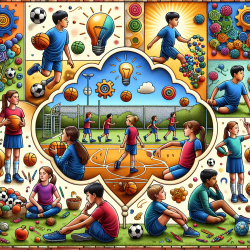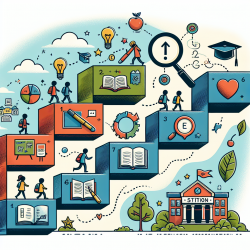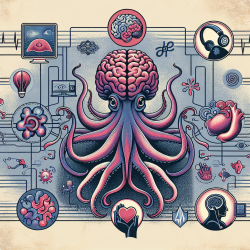In this blog, we'll delve into the findings of this research and explore practical ways for practitioners to apply these insights to improve their skills and encourage further research.
Understanding Executive Functions
Executive functions are higher-order cognitive processes that include inhibition, working memory, and cognitive flexibility. These functions are crucial for goal-directed behavior and academic success. The study conducted by Contreras-Osorio et al. (2022) aimed to analyze how practicing different types of sports—open-skill (handball) and closed-skill (athletics)—affects these executive functions in schoolchildren.
Key Findings
The research involved 90 school-aged children who participated in either handball, athletics, or no sports activities over a 12-week period. The study found:
- Handball: Increased inhibition (p = 0.034) and upper body muscular strength (p = 0.037).
- Athletics: Improved semantic fluency (p = 0.007) and lower body muscular power (p = 0.04).
- Both Sports: Enhanced overall physical activity (p = < 0.001).
These results indicate that while both sports improved physical activity and executive functions, they did so in sport-specific ways. Handball, an open-skill sport, was more effective in enhancing inhibition, while athletics, a closed-skill sport, improved semantic fluency.
Practical Applications for Practitioners
Practitioners can leverage these findings to tailor physical education programs that target specific cognitive skills:
- Incorporate Handball: To improve inhibitory control, consider integrating handball into your physical education curriculum. This can help students better regulate their thoughts and actions.
- Focus on Athletics: For enhancing semantic fluency and lower body strength, athletics is a great option. Activities like running and jumping can be particularly beneficial.
- Blend Both Sports: A combination of both sports can provide a well-rounded improvement in executive functions, addressing multiple cognitive skills simultaneously.
Encouraging Further Research
While this study provides valuable insights, it also opens the door for further research. Practitioners are encouraged to explore:
- Long-Term Effects: Investigate the long-term impact of these sports on executive functions beyond the 12-week period.
- Other Sports: Examine how other open-skill and closed-skill sports affect cognitive development.
- Individual Differences: Consider how factors like age, gender, and socioeconomic status influence the effectiveness of sports interventions.
By engaging in and supporting further research, practitioners can continue to refine their approaches and maximize the cognitive benefits of sports for schoolchildren.
To read the original research paper, please follow this link: Effects of the Type of Sports Practice on the Executive Functions of Schoolchildren










